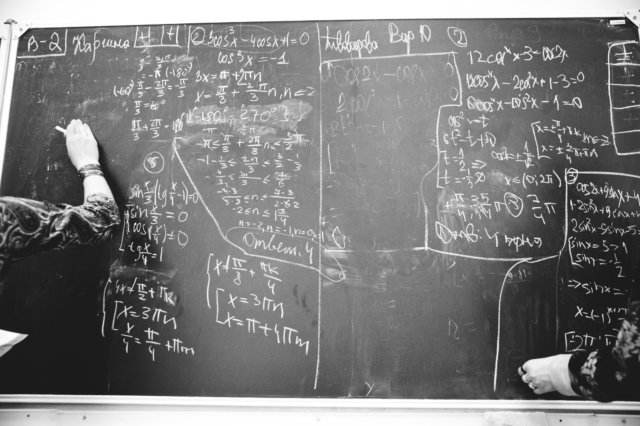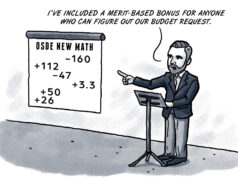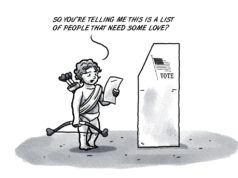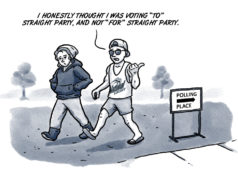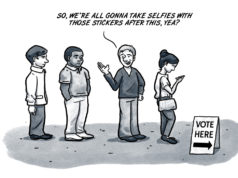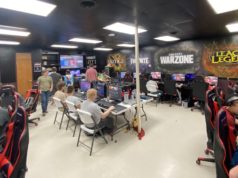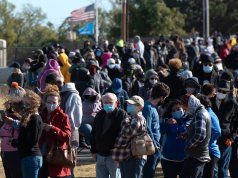
Mathematicians like to joke that the lottery is a tax on people who don’t understand probability. Actually, that’s all humanity, at least when we’re talking about estimating the tiny probabilities involved in things like winning the lottery.
Human beings have a highly sophisticated mental capacity for foreseeing dangers (or rewards). Instinctive, rapid systems in our brains that allow us to visualize helpful or harmful futures evolved at times when elaborate chains of reasoning quickly about things like killing an antelope with a rock or evading a saber-toothed tiger were literally life-and-death matters.
As a result, modern humans are expert visualizers. We see that in the recent lottery ticket-buying frenzy, when millions of people visualized themselves as instant billionaires. The odds, of course, were that their $3 tickets were virtually certain to be worthless. The chances of buying a winning lottery ticket are 1 in 175 million.
Despite a knack for visualization, people remain terrible at estimating risk possibilities. Many otherwise sensible people have a fear of being a victim of a firearm homicide. The chance of that is 1 in 16,000, although it drops to less than 1 in 50,000 for people who do not live with an abusive domestic partner or do not belong to a street gang. Many people are not fearful of dying of the flu, even though the chances of that are four times larger at 1 in 4,000, about twice as large as the risks of dying either from an opioid overdose or in an automobile collision.
A little arithmetic with the chances I’ve quoted above show that even the most likely (dying of the flu) is more than 40,000 times more likely than buying a winning lottery ticket. Moreover, the chances are very good that none of the bad things will happen to you anyway. (For the record: I recommend you get a flu shot, don’t be afraid of firearms, don’t take opioids, drive carefully and don’t waste money on lottery tickets.)
Between the chances of dying of the flu (unlikely) and winning the lottery (super unlikely) are the chances that your vote in an election makes a difference. I’m going to show you how to calculate this.
Follow me down this rabbit hole
I assume that, besides you, there are exactly 2 million voters in Oklahoma (this is about right), and that 87.5 percent of them vote (this is wildly optimistic). Assume also:
- It is a state-wide ballot.
- There are only two choices (called A and B).
- Voters are equally likely to choose A or B.
- Every ballot is correctly filled out.
In addition to yours, there will be 1.75 million ballots cast. Imagine these laid out in a row: In other words, 1.75 million slots, each marked with an A or a B. There are many ways to do this. This first slot could contain an A or a B, and for each of these choices the second slot could contain an A or a B, and so on, for 1.75 million binary choices. This gives 2 raised to the 1.75 millionth power equally likely possible ways the ballots could be filled out. This is an unimaginably large number (there are only 2 to the 240th power electrons in the universe, for example), but it will cancel out in the next step.
Now, what does it take for your vote to make a difference? The votes of your 1.75 million fellow voters have to be exactly split: 875,000 for choice A and 875,000 for choice B. In our above imagery, 875,000 slots will be filled with an A. How many ways can this happen? To count them, we imagine first choosing the 875,000 slots, then putting A in the chosen slots, and finally putting a B in each of the others. The number of different ways to choose half the slots is given by an exact formula called the middle binomial coefficient. In the case of enormous numbers like here, the exact formula can be replaced by an approximation called Stirling’s formula. This number, the number of ways ballots could be filled in with exactly 875,000 votes for each choice, is then divided by the total number of ways ballots could be filled out with unrestricted choice to give the probability that your vote makes a difference. This turns out to be about 0.79 times the reciprocal of the square root of the number (1.75 million) of ballots; including the 0.79 factor, we get the chances that your vote makes a difference is 1 in 1,600.
Your vote truly does count
A chance of 1 in 1,600 is still very small, but it’s 100,000 times as large as the probability of winning the lottery. Can you visualize yourself winning the lottery? Then vote! You’re 100,000 times more likely to make a difference.









